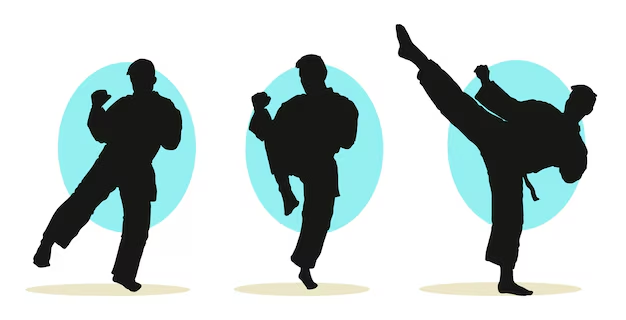Earlier this year, we hosted the first breakfast for alum who now have kids in the school, and we also welcomed alum from the then-St. John’s Club , which was later to become UWCSEA, for lunch and a tour (these alum graduated before I was born!). Both of these were great events with lively discussion and a lot of laughter over roti or chicken 65 as we traded stories of how the school has grown and evolved. For some more recent alum, the physical College has not changed so very much; for others it was almost entirely unrecognisable (the iconic roof of the Dover Main Hall being the only point of familiarity). So what has changed, and what endures? was a common conversation.
The question is, no doubt, a familiar one to many of us when we return home after a period abroad; things look and feel a bit different, even when they are largely the same. There’s truth in Heraclitus’ aphorism that you can’t step in the same river twice because the river has moved on in the intervening time. More important, though, is what Heraclitus didn’t say – that we too will have moved on in the intervening time. So the nature of things is to change; Eugene Ostashevsky’s marvellous observation the river is leaving. It’s making its unwavering way to no longer being a river applies just as much to people. We are all in the process of becoming, part of which is the process of leaving.
When I joined the College in 1995 I was a newly-married beginner teacher; and the education I saw was marvellous, exciting and inspirational. I left in 2001 to take my infant kids nearer to their grandparents, and returned in 2012 as High School Principal, in the early days of East Campus. Now, having also been head of East Campus, and as I approach the end of one year as Head of College, I’m also looking also on as a parent of two alumna, and a parent of a son in grade 11. I’ve been privileged to see the College grow from a secondary school of some 1500 students to the largest K-12 international school of its type globally, with nearly 6000 students on two campuses. As well as the marvellous, exciting and inspirational educational pieces, I also now see the organisational, strategic and governance pieces.
So in hearing about the experiences of alum, it’s been interesting to try to tease out the changes that the school has undergone, and the changes that come from natural changes of perspective. What looked one way as a student looks very different as a parent, or from a professional standpoint.
But in these changes, does anything endure?
Some changes are easy to spot for anyone who has been away for any length of time. Many individuals have, of course, retired or moved on – and many have arrived. Singapore does not stand still, and the reduction of Dover leased land over the decades (from 40ha to 20ha to 11ha) has mirrored the increased intensity of land use nationally. East Campus has, at the same time, grown from the newly constructed start-up feel to the firmly established, green and highly successful enterprise. Our Learning Programme has been formalised in the 5 Elements structure that today’s students enjoy; technology is now very much part of educational and administrative infrastructure, not a shiny new toy. The presence of four year olds on both Campuses is also a huge change – and the family feel is a huge bonus for us. The father of one of the St John’s Club shot a crocodile that had been attacking people near campus; happily, this too has changed and doesn’t happen anymore!
So much has changed. But look under the surface and much has also endured, as it does with any strong institution. And that’s not because we have strict and detailed standard operating procedures (which we do, by the way). If that were the case then we would only need only to get the right procedures or manuals to build great institutions – but it’s not so simple. Singapore politician George Yeo put it this way; institutions are not built top-down but bottom up. They are animated not by instructions but instincts; human instincts. These instincts are shaped by culture. We must first know what we are, what we have inherited from our history.

So it’s worth affirming what we know we have inherited from older days. Most of all, we have a long tradition of attracting families and individuals with the instincts we need to enact our Mission – this is expressed most clearly in our values, and informs what we do every day. This may be, for example, connecting with others; sticking with things in a difficult time; standing up for the right thing; genuinely engaging with other perspectives or following through on commitments. If you are reading this as an alum, I sincerely hope you saw and experienced those instincts in your time here, that this helped you develop the instincts yourself, and that you are paying it forward in whatever way you can. An extremely powerful instinct is also the ‘tendency towards action’ – whether it’s starting a local service, connecting with an NGO abroad, leading a sports team, directing a theatre show, challenging a wrong. These and many other things arise from being what we have been called – ‘a place where things happen’.
These are lofty and perhaps abstract institutional things. But one alumna said to me the other day that though she has been away for decades, and it all looks so different, it all also feels exactly the same. So what, exactly, on a day-to-day basis has endured?
For our students; the thrill of having one’s mind stretched, the service to others, the queue for the nan-counter, the excitement over project week, the exuberance in sports, theatre, dance, debate and so on, the laughter among friends, the support through difficulty, the sharing of cultures and perspectives, the teenage romances: these have endured.
For our teachers and support staff; the chance to work with superb colleagues on personally and professionally enriching projects; to stay young (our student body never ages!), to serve our community and to positively shape young minds: these have endured.

As a proud member of the United World College movement, what endures most of all is being part of something that is bigger than us as individuals, bigger than us as an institution, bigger even than education: the chance to make a contribution in our small way to a more peaceful and more sustainable future for our children, and our children’s children. This endures.



2 Responses
Interesting to see schools professional photos featuring on a private website. Especially considering the safeguarding push in relation to photos. I hope you have EXPLICIT consent from the parents
Thanks for this; there is indeed explicit sign-off on admission 🙂